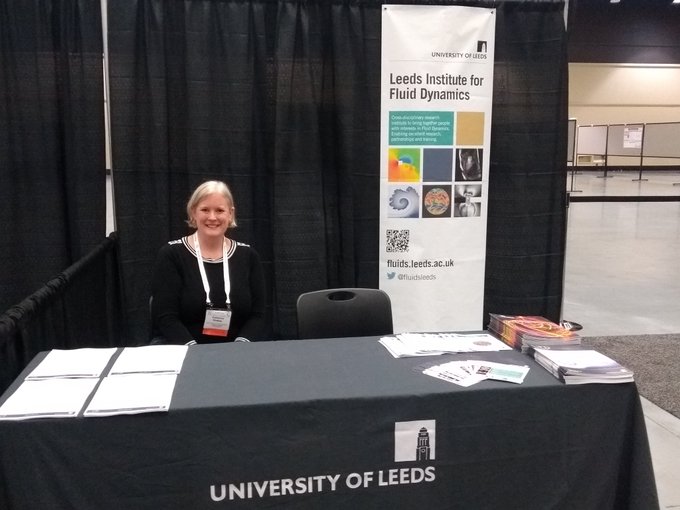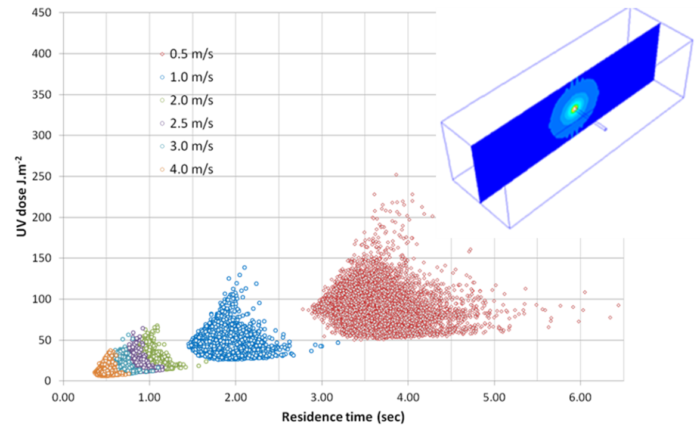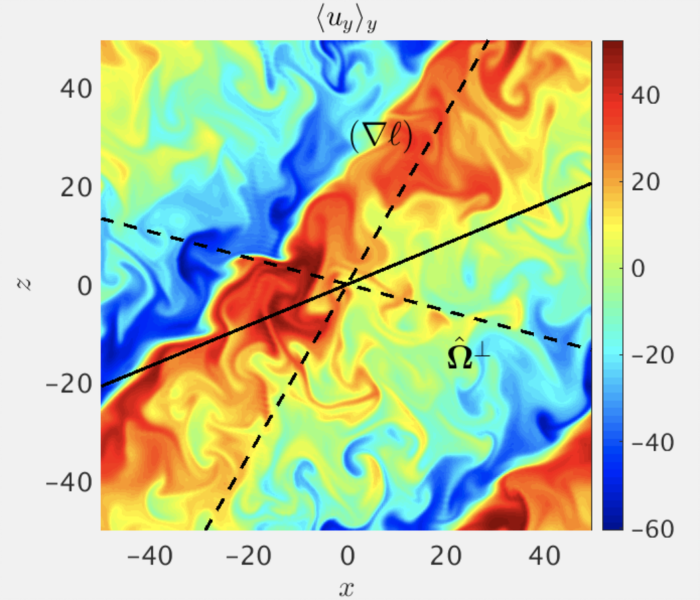LIFD Attends 72nd Meeting of the APS Division of Fluid Dynamics in Seattle
Over November 23-26, 2019, colleagues from the Leeds Institute for Fluid Dynamics attended the 72nd Annual Meeting of the American Physical Society’s Division of Fluid Dynamics (DFD) at the Washington State Convention Center in Seattle, Washington, USA. The APS-DFD annual meeting is one of the largest conferences in fluid dynamics, with more than 3000 attendees from around the world.
LIFD was represented by lead staff on a stand where the Institute's brochure was available for attendees. Visitors spoke to our representatives and learned about our ambitions to be a world leading centre for Fluid Dynamics, the collaborative research opportunities on offer in Leeds, the strategic partnerships we are building across the world, and the excellence in training we give to support cross-disciplinary postgraduates - some of whom were in attendance at the event to give talks.

LIFD Deputy Director Catherine Noakes welcomes visitors to the Institute's table at the Seattle conference
What is the LIFD?
The Leeds Institute for Fluid Dynamics (LIFD) is a cross-disciplinary research institute bringing together the expertise of over 200 members of staff, postdoctoral researchers and PhD students with teaching and research interests in fluid dynamics. The institute was established in 2018 and builds on a 50 year interdisciplinary track record of research in fluids. We provide a hub to facilitate world-leading research and education in fluid dynamics and to bring interdisciplinary perspectives to complex flow challenges.
LIFD Speakers
Understanding the performance of ultraviolet air disinfection systems was the focus of a poster and flash talk given by Professor Cath Noakes, based on research carried out by former PhD student Dr Azael Capetillo. UV disinfection is a method of inactivating microorganisms and hence can be used as a method of controlling airborne infection in buildings. A CFD model coupled with UV dose and activation is used to explore the variability in UV lamp installations in ventilation ducts. Results show simple changes to lamp placement can substantially influence the disinfection potential and performance of the system.

Above: System performance for a single UV lamp in a duct showing distribution of UV dose received by microbial particles compared to particle residence time
LIFD Director Professor Steven Tobias gave a talk on the Goldreich-Schubert-Fricke instability, an important concept which can lead to turbulence (and hence transport) in stellar interiors and in astrophysical disks. A key question discussed was how much momentum can be transported over the lifetime of a star and whether the turbulence can mix elements.

Above: an image from Professor Tobias' talk illustrating that turbulence can take the form of layers and jets; similar dynamics to those seen in oceans and on the surface of giant planets.
Other talks were given by Leeds PhD candidates at the conference, as shown in the below tweets:
What's next?
Thanks to all the speakers, attendees, and the American Physical Society for hosting this event. If any of the above has piqued your interest about the Leeds Institute for Fluid Dynamics, you can find further information and opportunities below:
- There are a number of post-doc opportunities within the Institute currently available:
- Research Fellow in Astrophysical Fluid Dynamics
- Research Fellows in Drops and Particles (Experimental: Droplet Particle Interactions, Spray and Spray Process Measurements. Theory/Modelling: Single Droplet Drying, Spray Dryer and Process Modelling, Particle-Droplet Modelling), please contact Prof Andrew Bayly for further information a.e.bayly@leeds.ac.uk
- Sign up to our mailing list for news, events, opportunities and much more.
- Find out more about how to work with us and take a look at LIFD's brochure for an overview of what LIFD can offer.
- We collaborate with the UK Fluids Network. Visit their website to find out more.
